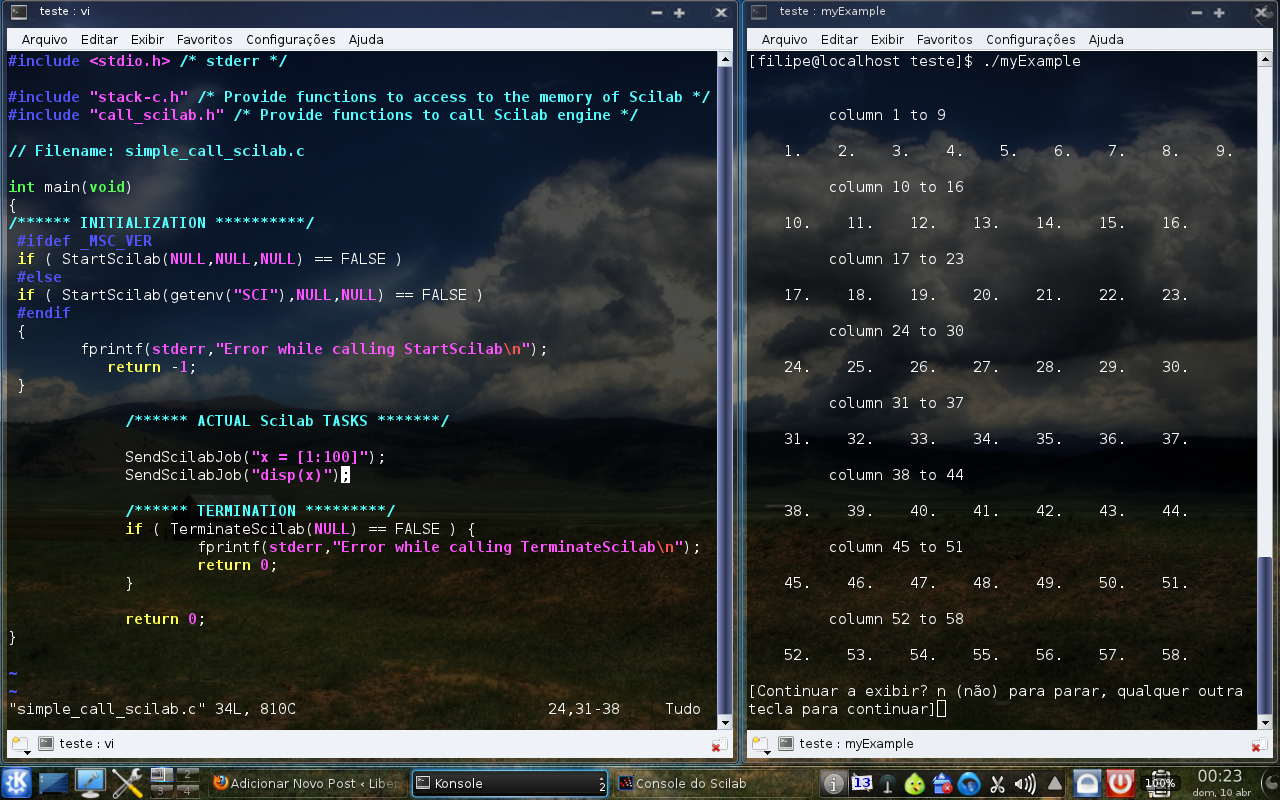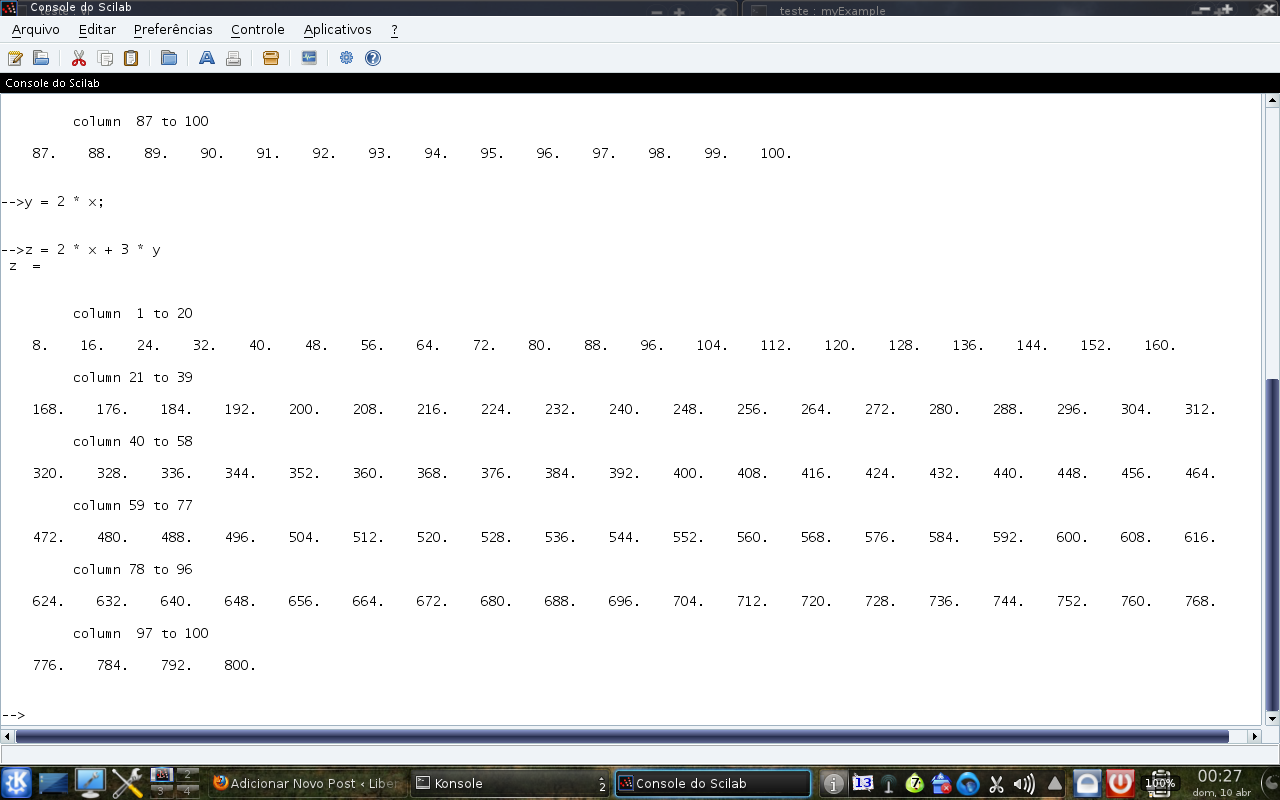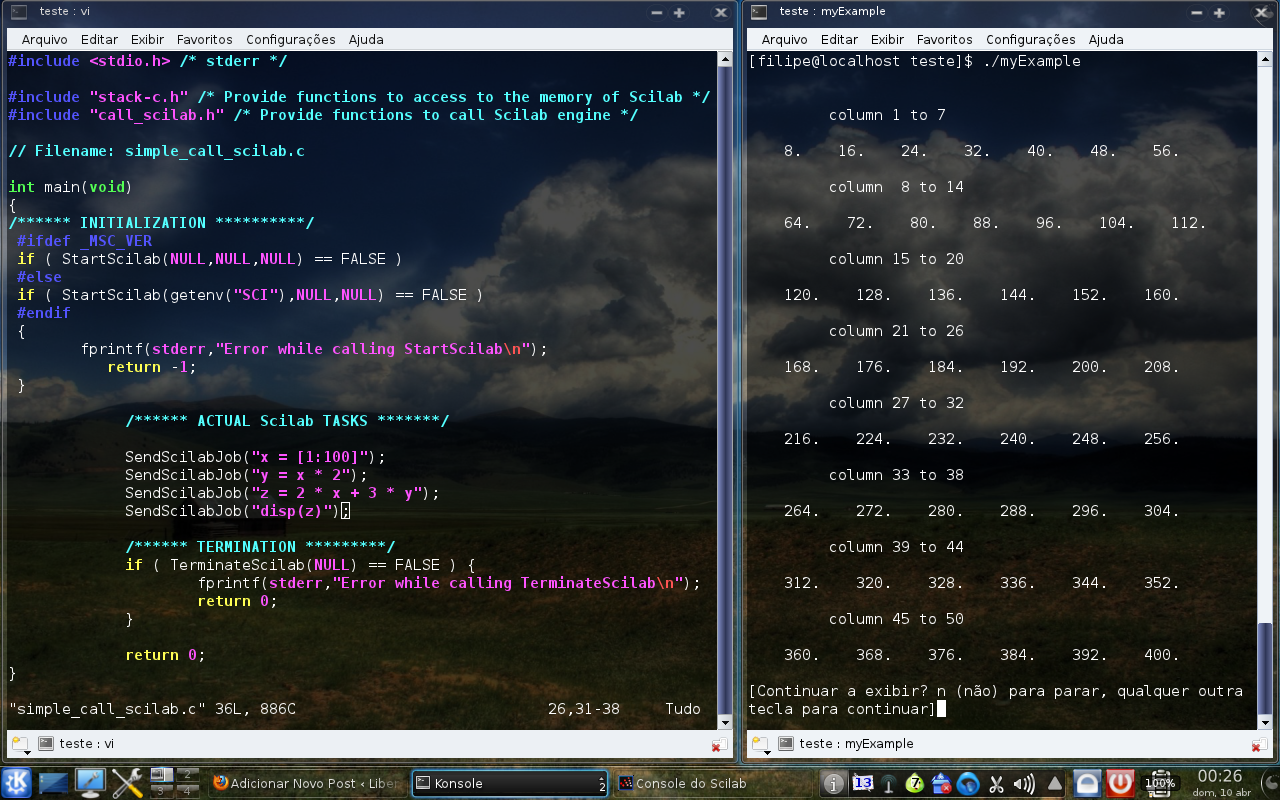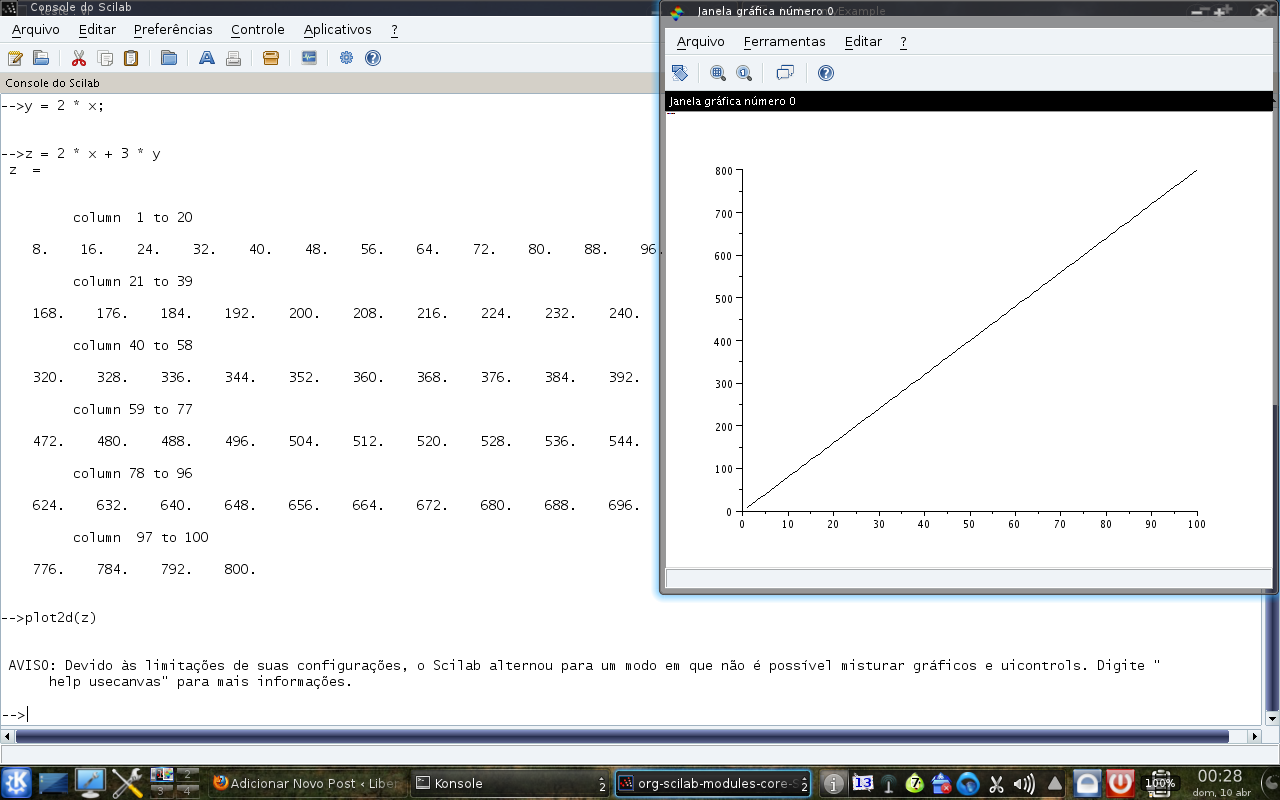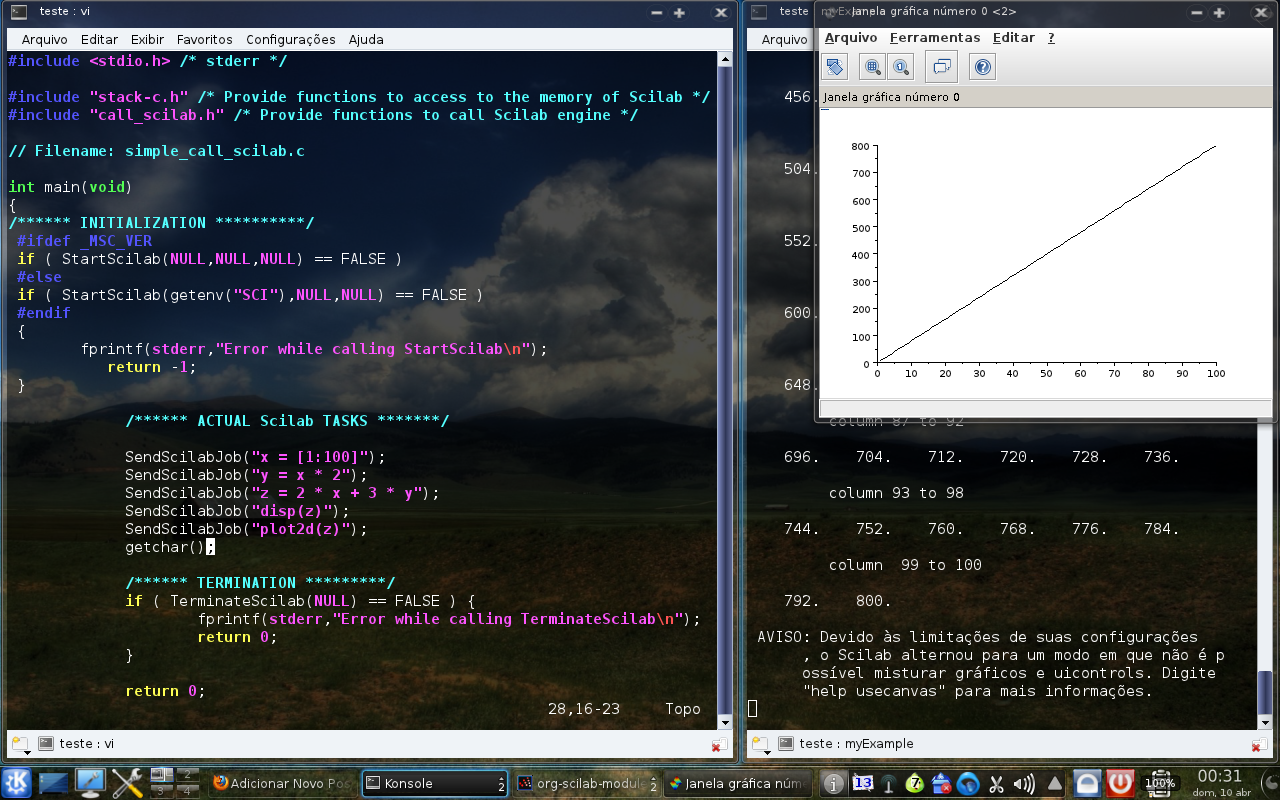O PSL-PI tem por objetivo incentivar o uso e a produção de software livre no Piauí como política de combate à exclusão digital. Acreditamos que a distribuição de conhecimentos proporcionada pelo Open Source/Software Livre tornará nossa sociedade mais justa e próspera, exatamente por dar a todos as mesmas condições de conhecimento e desenvolvimento.
Software Livre é uma grande oportunidade de construirmos uma sociedade produtora de ciência, independente e efetivamente competitiva. Estamos reconstruindo as bases da nossa sociedade, não mais calcados nos braços do Estado, mas sim, amparados pela iniciativa própria, pela auto-determinação. Nós somos capazes de nos auto-governar. Somos capazes de construir uma sociedade efetivamente Livre. Esta é a essência do PSL-PI.
O PSL-PI é formado pela articulação de indivíduos que atuam em instituições publicas e privadas, grupos de usuários e desenvolvedores de software livre, empresas, governos ou ONGs, e demais setores da sociedade. O importante é a consciência e disposição para propagar o uso de software livre e a cultura colaborativa nas diferentes esferas da sociedade.
Filipe Saraiva: Proposal submitted to GSoC: Support Scilab in Cantor
10 de Abril de 2011, 0:00 - sem comentários aindaThe deadline for submission of projects for Google Summer of Code (GSoC) 2011 has ended. Now, I will talk briefly about my proposal – which, in fact, has appeared as a suggestion on other issues of the GSoC program.

Scilab is a major scientific environments mathematical programming in free software available on the market, an alternative of comparable quality to proprietary environment Matlab. Its initial development occurred in 1990, promoted by researchers associated with the french institutions INRIA (Institut National de Recherche en Informatique et en Automatique) and ENPC (École Nationale des Ponts et Chaussées). In 2003 Scilab Consortium was created to promote the scientific software Scilab as a reference for academia and industry.
Scilab is used by various research centers, universities and industries around the world in diverse research as signal processing, simulation of fluid dynamics, combinatorial optimization, computational simulation, machine learning, among others.

Cantor – screenshot by Alexander Rieder
Cantor is a scientific software of KDE SC that serves as a graphical interface for mathematical processing software from a structure that provides plugins for these backends. Currently, Cantor supports the use of KAlgebra, Sage, Maxima, R, and GNU Octave.
The great interest for the use of Cantor is the possibility of working with scientific and mathematical programming in a modern setting, with available features such as printing of code, working on multiple tabs, have available a text editor with syntax highlighting, auto-complete gifts and more functions from the technologies of Qt and KDE library.
Well, my proposal aims to create a backend for Scilab in Cantor, thus promoting the environment supports this mathematical scientific nature of this software for KDE. So, give the Cantor even more visibility in academic and industrial community of mathematical programming as an alternative consistent and flexible graphical interface for the main mathematical programming environments available, particularly for Scilab which is one of the most used and widely recognized quality undisputed among others on the market.
To provide basis for the proposal, I’m developing code in pure C++ that calls Scilab to perform work. I use the API Scilab named call_scilab for it. This only serves to prove that it is possible to develop the backend via the API Scilab.
For example, let us define a matrix “x” in Scilab with 100 elements (click on pictures to enlarge):
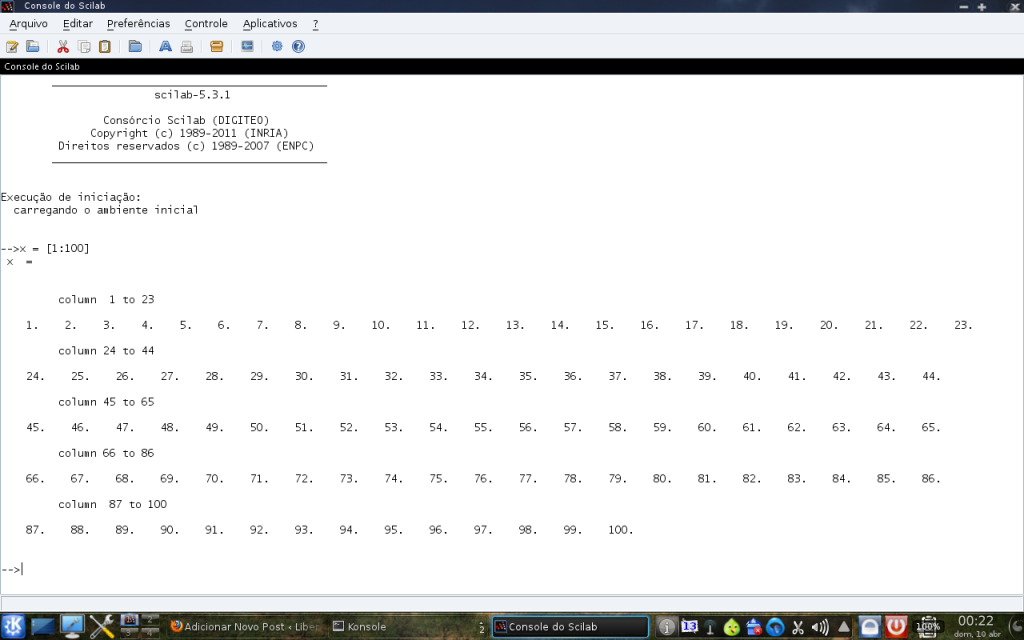
and now, in a C++ code with call_scilab. In the left is the code; in the right, the executing program:
Ok, this works! Now, we perform a mathematical operation with new definition and assignment of variables (y = 2 * x; z = 2 * x + 3 * y). First, in Scilab:
Now, in C++ code:
Finally, we will draw now the graphic of “z”. In Scilab:
And, using C++ code:
Well, the challenge now is to take it for implementation with Qt and C++, and develop the backend according to the standards of Cantor. Another challenge is about generating graphics in Scilab, but I already placed an alternative for implementation this in project that I sent to the GSoC.
I am very excited about the possibility of working with two communities of free software (KDE and Scilab) in GSoC. And, indeed, this project will be my puppy in KDE! ![]()
I’m hoping! Greetings!
PSL-PI: FLISOL 2011
9 de Abril de 2011, 0:00 - sem comentários ainda
O Festival Latino-Americano de Instalação de Software Livre – FLISOL aconteceu neste sábado dia 9, em vários lugares dos países da américa-latina e Caribe. No festival, várias comunidades de software livre fazem uma grande programação simultânea em diversos países para instalar software livre, fazer palestras, conversar e se divertir com os demais participantes.
Parabéns a esta grande iniciativa da comunidade!
Marvin Lemos: Introduction to Neural Networks with Java, Second Edition
9 de Abril de 2011, 0:00 - sem comentários aindaIf you are starting with Neural Networks you should check out this online book. It contains over 300 pages of information on Neural Network Programming in Java
. You can access it here.
- Chapter 1: Overview of Neural Networks
- Chapter 2: Matrix Operations
- Chapter 3: Using a Hopfield Neural Network
- Chapter 4: How a Machine Learns
- Chapter 5: Feedforward Backpropagation Neural Networks
- Chapter 6: Understanding Genetic Algorithms
- Chapter 7: Understanding Simulated Annealing
- Chapter 8: Pruning Neural Networks
- Chapter 9: Predictive Neural Networks
- Chapter 10: Application to the Financial Markets
- Chapter 11: Understanding the Self-Organizing Map
- Chapter 12: OCR with the Self-Organizing Map
- Chapter 13: Bot Programming and Neural Networks
- Chapter 14: The Future of Neural Networks
Fonte: http://www.jeffheaton.com/ai/
Marvin Lemos: The Geek Zodiac
8 de Abril de 2011, 0:00 - sem comentários aindaFonte: http://sawb.soup.io/
Marvin Lemos: The Story of Linux: Commemorating 20 Years of the Linux Operating System
8 de Abril de 2011, 0:00 - sem comentários aindaA very cool video about the 20 Years of the Linux Operating System:

